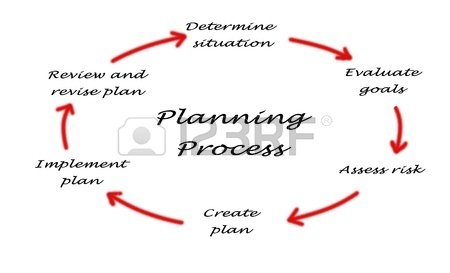Posted in Business Management, Organisational behaviour, Principles of Management
on Mar 2nd, 2014 | 0 comments
Nature of Organizational Planning
What is Planning?
“Planning is an intellectual process, the conscious determination of courses of action, and is a continuous process of decision making with built in flexibility.”- Herold Koonz and Weirich

Planning is the most basic and primary of all management functions on the premise of which other functions evolve. It would be appropriate to compare planning to the basement or foundation of a building upon which the entire system rests. Planning bridges the gap from where we are to where we want to go.
Planning involves selecting the best objectives and deciding on the suitable course of action. When we talk about planning, control is another entity that tags along like inseparable two-sides of a coin. Without planning there is no control and without control planning becomes meaningless.
NATURE OF PLANNING:
- Prime function of management: Planning is the key to all other functions of management like organizing, leading, staffing and controlling.
- Is a continuous process: Plans need periodic review in the wake of external environment and internal resource potential and thus is a continuous process.
- Is an intellectual process: What is to be done, when, who and how are the very important questions that loom before a manager before making every decision. He has to use his intellect in order to make the right plans before acting.
- Is all pervasive: It penetrates right from the top to the bottom level of management, but it is the responsibility of the managers or executives at the top level to make the right moves at the right time.
- Is flexible: One has to understand that flexibility is restricted when it comes to irretrievable costs already incurred in fixed assets, training, advertising etc.
- Is goal oriented: Planning starts with setting up of objectives and completely goal oriented.

TYPES OF PLANS:
- Purpose or Missions: Basic task of an organization. For example, teaching and research can be attributed as the basic function of an educational institution; the purpose of business is to produce, distribute goods and make a surplus.
- Objectives: These are the goals that have to be accomplished by the organization. Corporate companies chart out their production plan well in advance to meet the requirements on time. For this they break the objectives into short term goals i.e., for a quarter based on the sales forecast. This kind of planning gives clarity and direction for the production team to achieve the goals.
- Strategies: These are the set of action plans designed in order to achieve the future objectives backed up by long term perspective in the wake of environmental analysis and give direction in which the resources have to be channelized.
- Policies: These are basically the guideline books that direct the course of the organization’s function as what to do and what not to-do. They see to that the decisions made fall well within certain boundaries in order to ensure fair and equitable treatment to all the employees. HR policies govern all the functions related to pay, promotion and other disciplinary mechanisms related to the work force.
- Procedures: They are programmes designed to carry out the activities of the organization in a specified manner. The procedures for placing a purchase order, payment collection etc.,
- Programmes: A programme is the sum total of goals, policies, procedures, rules, task etc., For example, new product development may be cited as a major programme while promotional campaign may be cited as a supporting programme.
- Budget: No plan is feasible without a budget allocated to it. A budget is a numberised programme and more of a control device. Revenue budgets, expense budgets, production budgets to name a few.
- Zero base budget: This kind of budget does not take into account the previous year’s performance record or budget but treats every progarmme afresh and starts working from ground up. Each programme is treated as a separate package and is submitted for review through various channels.